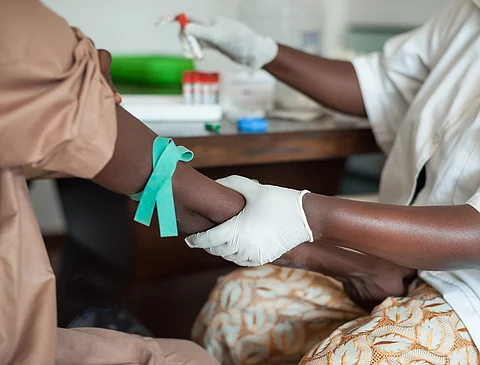

The Access to Medicine Foundation, a Netherlands-based non-profit organisation, released its latest Index Report on November 19, 2024, evaluating 20 leading pharmaceutical companies on their efforts to expand access to their products in low- and middle-income countries (LMIC). The biennial report has been published since 2008.
Access to life-saving pharmaceutical innovations, such as medicines and vaccines, is not guaranteed for everyone who needs them. This lack of access is particularly pronounced in many LMICs.
The report ranked companies based on three key technical areas: Governance of access, research & development (R&D) and product delivery.
This year, Swiss pharmaceutical giant Novartis AG secured the top spot, followed closely by the United Kingdom’s GlaxoSmithKline plc (GSK). While Novartis surpassed GSK to take the lead for the first time, overall industry performance has declined since the 2022 Index, the report noted. Companies at the lower end of the rankings still have a long way to go.
The 2024 Index identified three key findings.
Firstly, while pharmaceutical companies are taking steps to address access in low-income countries, significant gaps remain. Encouragingly, more companies are adopting ‘inclusive business models’ that prioritise low-income and least-developed countries. These models, with their wide-reaching product and country coverage, have the potential to sustainably improve the lives of more patients across broader regions.
However, the report noted that the outcomes of these models are somewhat mixed, with a lack of transparent reporting on how many patients are truly being reached.
Additionally, companies’ equitable access strategies and outcomes remain skewed towards upper-middle-income countries, with 61 per cent of the products assessed still lacking access strategies for low-income countries, compared with 65 per cent in the 2022 Index.
Secondly, patients in LMICs are largely excluded from clinical trials, limiting their access to new treatments. Only 43 per cent of clinical trials take place in the 113 LMICs covered by the Index analysis, despite these countries being home to 80 per cent of the global population.
Lastly, efforts to increase the local availability of medicines through voluntary licensing and technology transfers are limited. Despite some promising examples of companies pursuing technology transfers, the report highlights that sub-Saharan Africa, aside from South Africa, remains widely overlooked. Overall, company efforts are largely concentrated in Brazil, China and India.
“There are significant opportunities to scale access and finally bridge the health equity gap for billions around the world. By using tried-and-tested mechanisms and new and innovative approaches, as well as leveraging their local partnerships, companies can meet their full potential in delivering their lifesaving treatments to patients, wherever they are needed,” Jayasree K Iyer, chief executive officer for Access to Medicine Foundation, said in a press note.
The report also highlighted a concerning trend: Companies are increasingly moving away from addressing priority R&D gaps for diseases such as malaria and tuberculosis, which disproportionately burden LMICs.
Last year, researchers from Delhi-based think tank Centre for Science and Environment assessed the clinical pipeline of select 15 high-earning, global pharmaceutical and biopharma companies in the article A Developing Crisis, for the July 16-31, 2023 edition of the Down To Earth magazine.